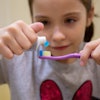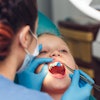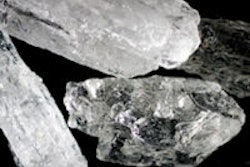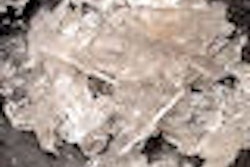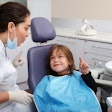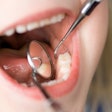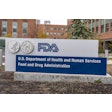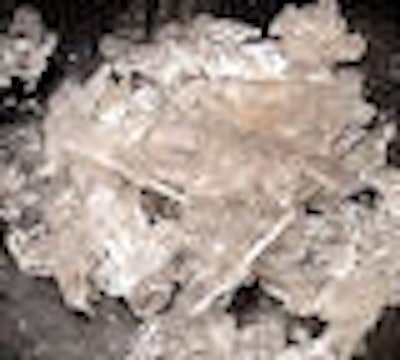
As more and more Americans abuse crystal methamphetamine, the effects are showing up on their teeth. And that poses a moral challenge for U.S dentists, says Mitchell Goodis, D.D.S., a Diamond Springs, CA., general dentist.
"Meth abuse is an ongoing, growing problem among high-school students, many of whom see a dentist regularly and are not diagnosed despite readily apparent symptoms," Dr. Goodis told a standing-room-only audience at the California Dental Association (CDA) spring meeting in Anaheim, CA.
Even if you can't solve your patient's addiction problem, you need to know whether your patients are using the drug because it affects the way you can treat them, Dr. Goodis said.
According to the U.S. Drug Enforcement Administration, crystal meth is the No. 1 drug in rural America and has become the new drug of choice for everyone from soccer moms to working dads and even grade-school students. The 2006 National Survey on Drug Use and Health found that nearly 6% of the U.S. population age 12 or older had used methamphetamine at least once in their lifetime.
“People think that all drug users look strange. But the reality is that some are your everyday patients—normal, good-looking kids, high-school students, even parents.”
The ingredients for making the drug are easily found around the house or at the local drug or hardware store: cold and allergy medicines, rubbing alcohol, brake cleaner, engine starter, drain cleaner, lawn fertilizer, lye, matches, kerosene, and paint thinner.
Meth is highly addictive; many users are hooked the first time they try it. That was the story told by two recovering addicts who stood alongside Dr. Goodis during his three-hour lecture at the CDA meeting and talked openly about their abuse and recovery, taking dozens of questions from the audience. Long-term abuse can cause serious dental deterioration, hallucinations, heart failure, brain damage, and stroke, not to mention devastating the lives of addicts and their families.
"People think that all drug users look strange,'' Dr. Goodis said. "But the reality is that some are your everyday patients -- normal, good-looking kids, high-school students, even parents."
The myths
There are other myths about meth addicts, he added. For example, contrary to popular belief, and often despite financial difficulties and lack of insurance, meth users do seek dental care. Dr. Goodis displayed a number of x-rays of his patients who had come to him with crowns, amalgam restorations, and root canals. In fact, dentists are often one of the first healthcare professionals to treat meth users.
And therein lies the challenge, he said. "Another myth in the dental community that I hear all the time is 'I don't see meth users in my office or practice,' " he said. "Many dentists, especially in high-end practices deny it. They don't want to believe it."
The signs of possible meth use are many, Dr. Goodis added. In addition to physical and behavioral changes, one of the earliest symptoms is cervical decay in the mouth, caused by both the chemicals in the drug and reduced hygiene (tooth brushing). In more advanced cases, the teeth take on a grayish-brown appearance, then become weak -- cracking and breaking easily -- and eventually spongy. After long-term decay, teeth take on a goblet shape.
Patients diagnosed with "meth mouth" need special treatment considerations, according to Dr. Goodis. These patients often have a hypersensitivity to pain; given that multiple tooth extractions are often required, major anesthesia is necessary.
But it is important to avoid traditional opioids. Instead, use nontraditional opioids such as Ultram (tramadol), plus nonsteroidal anti-inflammatory drugs. Care for any remaining teeth should include daily use of MI Paste to remineralize dental enamel, along with daily use of PreviDent 5000 and Biotene for dry mouth. It is also important to recognize that meth addicts, even those who are no longer using, often have diminished liver function, weakened blood vessels, and long-term memory issues, which can impact follow-up care.
"Learning about crystal meth is not in any dental books," Dr. Goodis said. "You have to talk to people. When it comes to your patients, you never know unless you ask."
To see Dr. Goodis' videos on crystal meth, click here.
